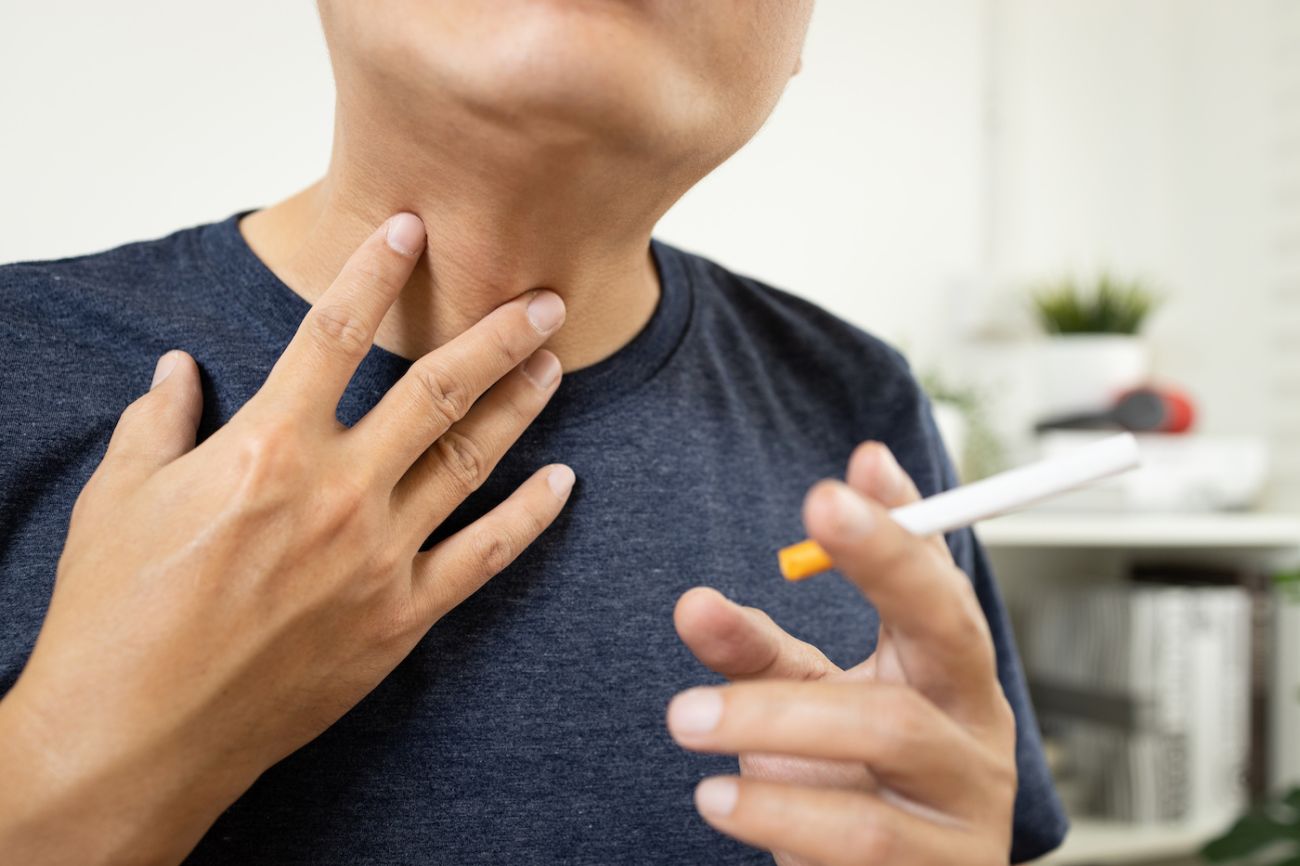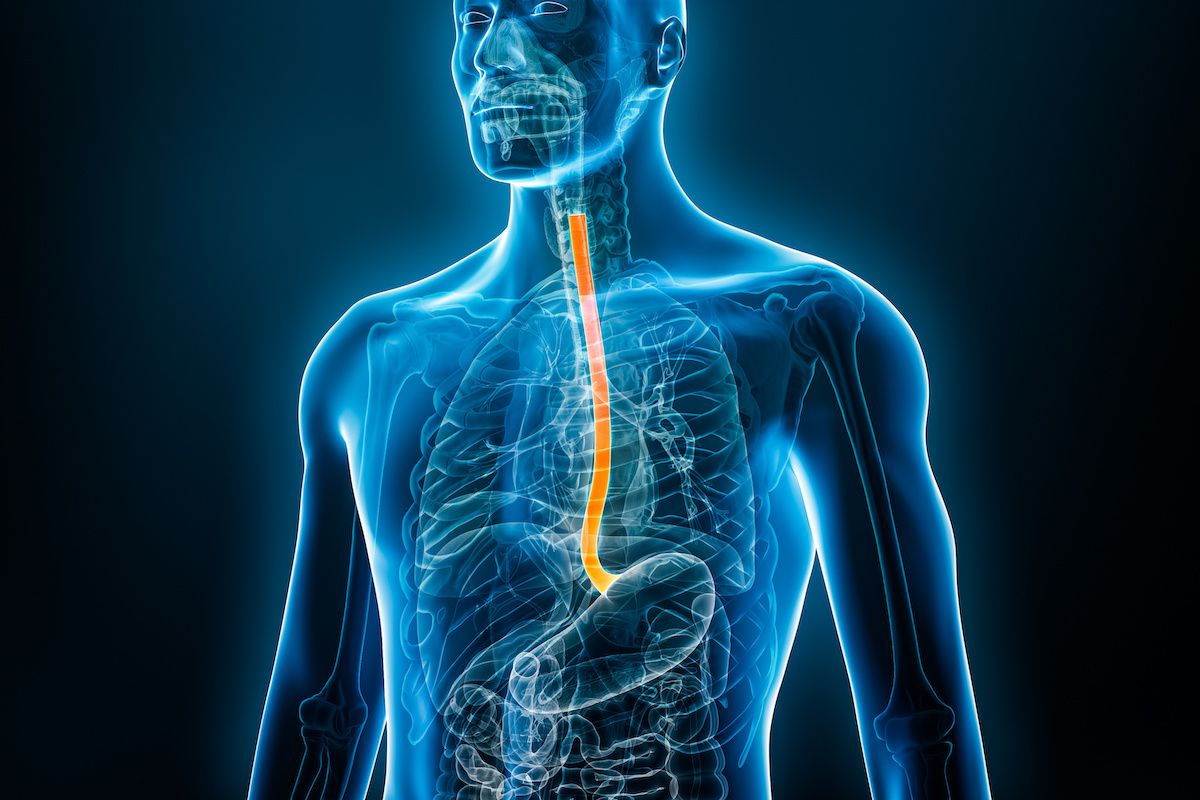Exact causes of esophageal cancer remain unclear however research has identified certain factors that increase a person’s risk for developing the disease. These include:
- Older age. Most people diagnosed with esophageal cancer in the U.S. are over age.
- Male gender at birth. Men are four times more likely than women to develop esophageal cancer.
- Smoking. Smokers are two times more likely than nonsmokers to develop esophageal cancer. Heavy smokers face greatest risk.
- Heavy alcohol use. More than two drinks a day for men, and one a day for women.
- Drinking and smoking. These two factors combined raises the risk far more than either one alone.
- Chronic acid reflux, or gastroesphageal reflux disease (GERD). When stomach acid inches backward from the stomach into the esophagus, it can damage the lining of the esophagus. Over time, long-term acid reflux can lead to a condition called Barrett’s esophagus.
- Barrett’s esophagus. When the esophageal lining becomes damaged by long-term acid reflux, the squamous cells that usually line the esophagus are replaced with gland cells. These gland cells can become abnormal and develop into a precancerous or cancerous condition.
- Unhealthy lifestyle. Being overweight or obese, eating a meat-heavy diet and a lack of physical activity increase the risk for esophageal cancer.
- Achalasia. This condition, in which muscles at the lower end of the esophagus do not relax properly, causes food and beverages to collect in the lower esophagus instead of passing into the stomach. People with achalasia have a much greater risk for developing esophageal cancer.
- Tylosis. This rare inherited condition can cause abnormal growths in the esophagus.
- Personal history of cancer of the lung, mouth or throat.
- Plummer-vinson syndrome. This rare syndrome causes abnormal web-like tissue growths in the esophagus which can lead to trapped food and esophageal irritation.
- Infection with human papillomavirus.
- Esophagus injury from lye. Accidental ingestion of a cleaning product that contains lye can cause scarring that even years later increases risk for esophageal cancer.
Diagnosis Get a second opinion
If you have Barrett’s esophagus
When acid reflux becomes chronic, the name for this condition is gastroesophageal reflux disease, or GERD. Ongoing GERD may begin to cause damage to the esophagus lining, leading to a condition called Barrett’s esophagus Over time, the tissue lining of the esophagus is replaced by tissue similar to intestinal lining. Determining which people with the condition are most likely to develop cancer — and should seek treatment — isn’t always clear.
Anyone with Barrett’s esophagus should have a periodic upper GI endoscopy with a biopsy. A pathologist will examine the tissue sample to assess how abnormal the cells look, a condition known as dysplasia. The abnormal cells may be called high-grade (more likely to cause cancer) or low-grade (less likely to cause cancer). Having Barrett’s esophagus with high-grade dysplasia is considered a precancerous condition and most people should be treated in a timely manner.
Preventing esophageal cancer
You can take steps to protect yourself by reducing or eliminating risk factors. While you cannot change your gender at birth or your age, you can take other proactive steps, such as:
- Avoid tobacco: If you smoke, quit now. Smoking has been linked to as many as one in five cases of esophageal cancer. Find the support and guidance you need by calling the New York State Smokers’ Quitline at Roswell Park, at 1-866-NY-QUITS (1-866-697-8487).
- Limit alcohol intake
- Eat a high-fiber diet and reduce fats and red meat
- Maintain a healthy weight
- Exercise regularly

